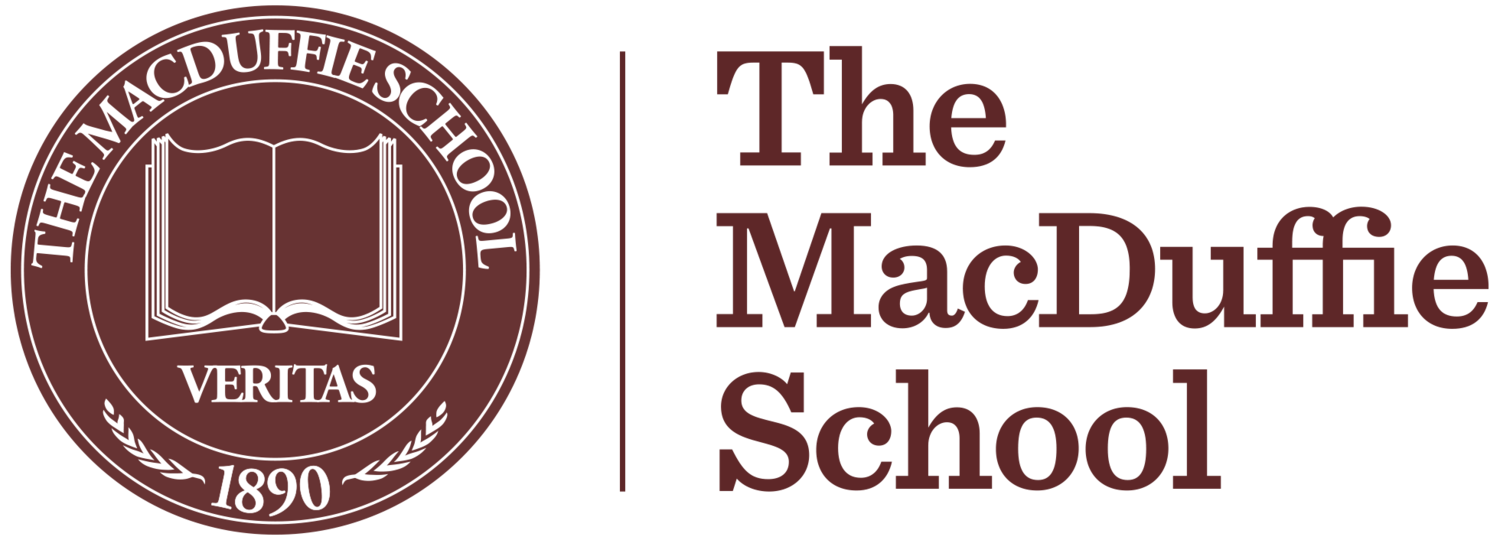English Language Learners Program
Because MacDuffie’s academic program is college preparatory, we strive to prepare international students for success at American colleges or universities upon graduation. We may recommend that ELL students take an extra year in order to complete academic requirements and to successfully prepare for college or university acceptance. We do make a few adjustments to diploma requirements for students whose first language is not English:
The ELL student is not expected to meet the language requirement since he or she has proficiency in a first language other than English. While we encourage all students to study a third language if they are capable of doing so while meeting other academic requirements, only a few students find they have time to do so.
The English Language Learners course may meet graduation requirements in English under certain circumstances; however, our goal is for all ELL students to be able to succeed in a standard, age-appropriate English course before they graduate since that is a clear advantage for admission to an American college or university.
ELL students are taught English grammar and composition and are instructed in the kind of language skills important for the TOEFL and SAT. Students learn academic reading and writing skills. They read American, English, and other world literature and learn different styles of expository writing by working on research papers and critical essays. ELL also emphasizes spoken language. Students learn how to take notes from academic lectures and discussion, how to glean the important information from English-language broadcasts, and how to communicate with others and infer meaning in everyday conversations.
In the ELL classes, students are also taught how to learn and study in the American style. For instance, in our classrooms, all students are expected to participate actively in discussion, to ask questions of their teachers and classmates, and to challenge each other’s ideas in class, which may be unfamiliar and cause initial discomfort to many international students. Teachers at MacDuffie are interested in their students’ thought process and encourage inquisitiveness. They expect their students to not only ask questions in class but also to ask them for individual help after class. ELL students may not be accustomed to this informal exchange between teacher and student and are encouraged to learn to take advantage of this educational opportunity. MacDuffie’s ELL teachers help their students learn what is expected here both inside and outside the classroom.
ELL I Academic Skills
This is a comprehensive beginner course which focuses on developing both communicative and academic language. Students use readings from literature, science, and social studies as the basis for vocabulary study and other language building activities that develop the essential reading, writing, listening, and speaking skills needed for success in higher level English and content classes. ELL I Academic Skills is a double-block class which includes reading, writing, listening and speaking.
ELL Humanities
This is a course designed for ELL I and ELL II level learners and focuses on improving reading, writing, listening and speaking skills using history and culture as a framework for these skills. The course is structured to prepare students for American Culture, course #1230. Students learn how to undertake historical analysis and synthesis through the development of study skills. This course runs concurrently with ELL I or ELL II.
ELL II Reading/Writing
This is a low-intermediate level course which focuses on developing all English language skill areas with a particular emphasis on reading and writing. Students read a variety of fiction and nonfiction works, which are used to generate new vocabulary words and topics for class discussion. Students are expected to participate fully in these discussions. In addition, students learn to use topic sentences and thesis statements to write well-constructed paragraphs and short essays in various rhetorical modes drawing on themes from the reading and from their personal experience. Students review basic English grammar and usage and focus on editing for proper grammar in their essays.
ELL II Listening/Speaking
This is a low-intermediate level course which focuses on developing all English language skill areas with a particular emphasis on listening and speaking. Students develop their listening comprehension skills in both social and academic settings, and learn to listen for specific information or for a specific purpose. In addition, students learn how language use can change with audience and setting; they practice speaking in a variety of formal and informal situations and for various purposes such as persuading, informing, and entertaining.
ELL III
This class builds on the speaking, reading, and writing skills introduced in ELL II through the study of expository prose and short fiction, especially that of American authors. A wide variety of texts are used to introduce vocabulary and grammar and generate topics for discussion and student compositions. Writing instruction emphasizes rhetorical modes, thesis development, textual support, and editing techniques. The close study of at least one longer novel serves to prepare students for the central focus of the novel in mainstream English classes. Students also learn key vocabulary, grammar, and rhetorical techniques.
ELL IV (2025-2026)
This is an advanced level English language course from which students will enter mainstream English classes. Students read a variety of nonfiction, short stories, poetry, and novels, and they are expected to participate fully in class discussions of these works. Because the course focuses intensively on writing, students write numerous essays drawing on themes from the nonfiction, stories, poems, and from their personal experience. Through the essays, students polish their skill in developing a thesis in different rhetorical modes and in using text from the reading to support their arguments. In the last quarter, students learn how to use appropriate library and internet resources to effectively research and write a research-based paper. English usage and grammar topics are studied as needed based on recurring errors in student essays.

